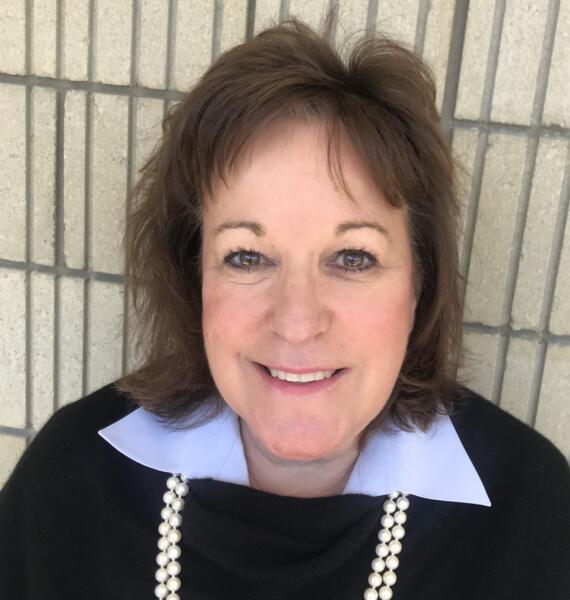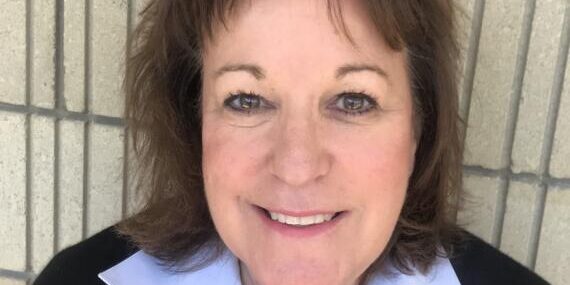Maddie Josephs, MS, MLS(ASCP)CM, ASCLS President-Elect

A. While I would like to address this issue within ASCLS, I suspect the reasons for these limitations and solutions would be very similar across all laboratory organizations. Over the past several years, our profession has undergone rapid demographic and technological change that has transformed ASCLS and the nature of our work itself. But there is one thing that hasn’t changed since our profession began.
I would like you to consider one word: VISIBILITY.
Visibility is a noun that is defined as follows: The state of being able to see or be seen. For example, it can mean: The distance one can see as determined by light or weather conditions. It can also mean the degree to which something has attracted general attention or prominence.
Let’s consider our organization and our profession. We perform our duties, every day, all day, in a laboratory. We are out of the sight of vision of patients, physicians, other healthcare professionals, and frankly, out of the public eye. We can’t change the fact that we are the behind the scenes heroes. We need our laboratories to carry out our important work.
“ASCLS lives up to its mission of making a positive impact in healthcare, and our focus should continue on helping our committees utilize the tools necessary to increase our visibility and support the next generation of leaders, and in turn, to increase our membership.”
Fortunately, a number of initiatives and programs both within and outside of ASCLS has taken us out of the lab and already improved our visibility. But there is still work to be done.
Point of care (POC) testing has been impactful, but we cannot possibly do everything at the point of care, not to mention that all of testing is not always performed by laboratorians.
Licensure, which has proven to be a polarizing issue among many medical laboratory professionals, I believe, is essential. If we are to be considered healthcare professionals, then we should be licensed, as are all other healthcare professionals who exercise independent judgement every day. But only a fraction of states has licensure for our profession. As an organization, we need to re-examine our approach to licensure and provide resources to our states to help them pursue a professional license.
The Doctor of Clinical Laboratory Science (DCLS) model has brought our profession to the front lines of healthcare, and the formation of interdisciplinary teams makes us more prominent among other professionals.
But all of this still begs the question: in our professional organizations, how can we increase membership and retention?
I truly believe that the problem and the solution is two-fold. As laboratory professionals, we need to be visible to healthcare consumers; and as a professional organization, we need to be visible to all laboratory professionals. We are ASCLS members because we value the Society. We have value both as a profession and as a professional organization. We need to determine a mechanism to deliver that value to others.
ASCLS lives up to its mission of making a positive impact in healthcare, and our focus should continue on helping our committees utilize the tools necessary to increase our visibility and support the next generation of leaders, and in turn, to increase our membership. This begins with a commitment to mentoring, promotion, and communication.
Thanks to competent and thoughtful leaders before me, several projects and existing and new committees are poised to benefit our Society and address our limitations with recruitment and retention.
The Root Cause Task Force, through a comprehensive survey, provided our Board of Directors with some insight as to why we are recycling leadership and helped us to understand why some of our state constituent societies are struggling. And now, the Constituent Society Task Force will continue this important work.
The Promotion of the Profession Committee continues to bring the visibility we need to our profession as well as to ASCLS. Some important initiatives like our participation in the National Science Fair, thanks to Mary Ann McLane, have raised our profile as a profession.
The Mentorship Program was created to provide a supportive environment that fosters a feeling of value as a member of ASCLS. This year the program grew by 50 percent and paired up nearly 45 mentor/mentee partnerships, compared to 30 partnerships in 2018.
Lastly, our new Marketing and Communications Committee has drafted communication goals to bring our story to stakeholders like patients, laboratory professionals, and other healthcare professionals. I am excited to see the committee’s next steps.
The framework is in place and we have the tools. As president-elect, I will endeavor to help implement these tools and lead this organization by helping to fulfill the goals of these important committees.
I have been on the Board of Directors for the past six years. These years have been an incredible learning experience, and I have been so fortunate to collaborate with current and past leaders. I have had many opportunities for professional growth, and I have seen some momentous changes in our organization.
One of the things ASCLS Executive Vice President Jim Flanigan asked us to do as a board was to think outside of the box and consider all possibilities. For example, what if ASCLS had 30,000 members? What if we gained more prominence in the healthcare environment? What if licensure for laboratory professionals was required in every state? And most radically, what if we had a national campaign to bring recognition to both our profession and our professional organization? Because I don’t think we can raise our profile as an organization without raising the profile of our profession.
So really, nothing is missing in ASCLS. We have the tools at our disposal, and we can all work together with our committees and partners to use these tools. I believe that both increased recognition of our profession and increased recognition of our Society will result in increased recruitment and retention of members. This is our opportunity to work together to show our value to others, to make our organization strong and visible, and I am ready to lead that charge.
Maddie Josephs is professor/department chair of the Allied Health Department at the Community College of Rhode Island in Lincoln, Rhode Island.
